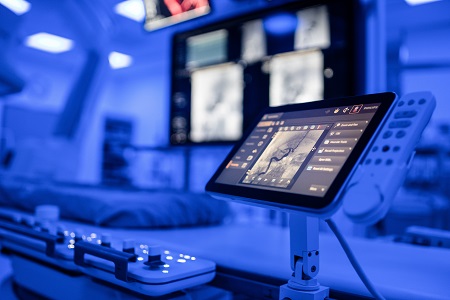
Thanks to the collaborative BioDesign program of the Hadassah Medical Organization and Hebrew University, a prototype has been developed that alerts Intensive Care Unit (ICU) staff of the need for immediate intervention to prevent further deterioration in comatose brain-injured patients.
BioDesign connects Hebrew University bioengineering and business graduate students with Hadassah Hospital clinicians to raise awareness about medical needs with an eye toward creating innovations to meet them. In one such meeting, Prof. Jose Cohen, director of Hadassah’s Endovascular Neurosurgery Unit, shared with the students how difficult it was to continuously monitor comatose patients, a crucial aspect of their care. The device that resulted from that meeting is a pair of goggles, equipped with a camera lens and a light that, when placed on the patients’ closed eyes, can continuously monitor, measure, and record their pupils’ reaction to light. A tightening of the pupils in reaction to light indicates that the brain stem, the most basic part of the brain, is still active. If there is no reaction, it means that the patient’s condition is deteriorating and that either medication or surgery are needed to halt possible further brain damage. The device would immediately alert ICU staff to any abnormal findings.
Typically, the ICU nursing staff perform this labor-intensive, time-consuming pupillary assessment about once every hour. They manually examine the pupils by lifting the eyelids and illuminating the eyes with a flashlight. Then they measure the pupil’s response with a ruler and chart the results.
The new technology’s feasibility has already been demonstrated in a clinical trial with 40 volunteers at Hadassah.
Read the full story in The Times of Israel.
